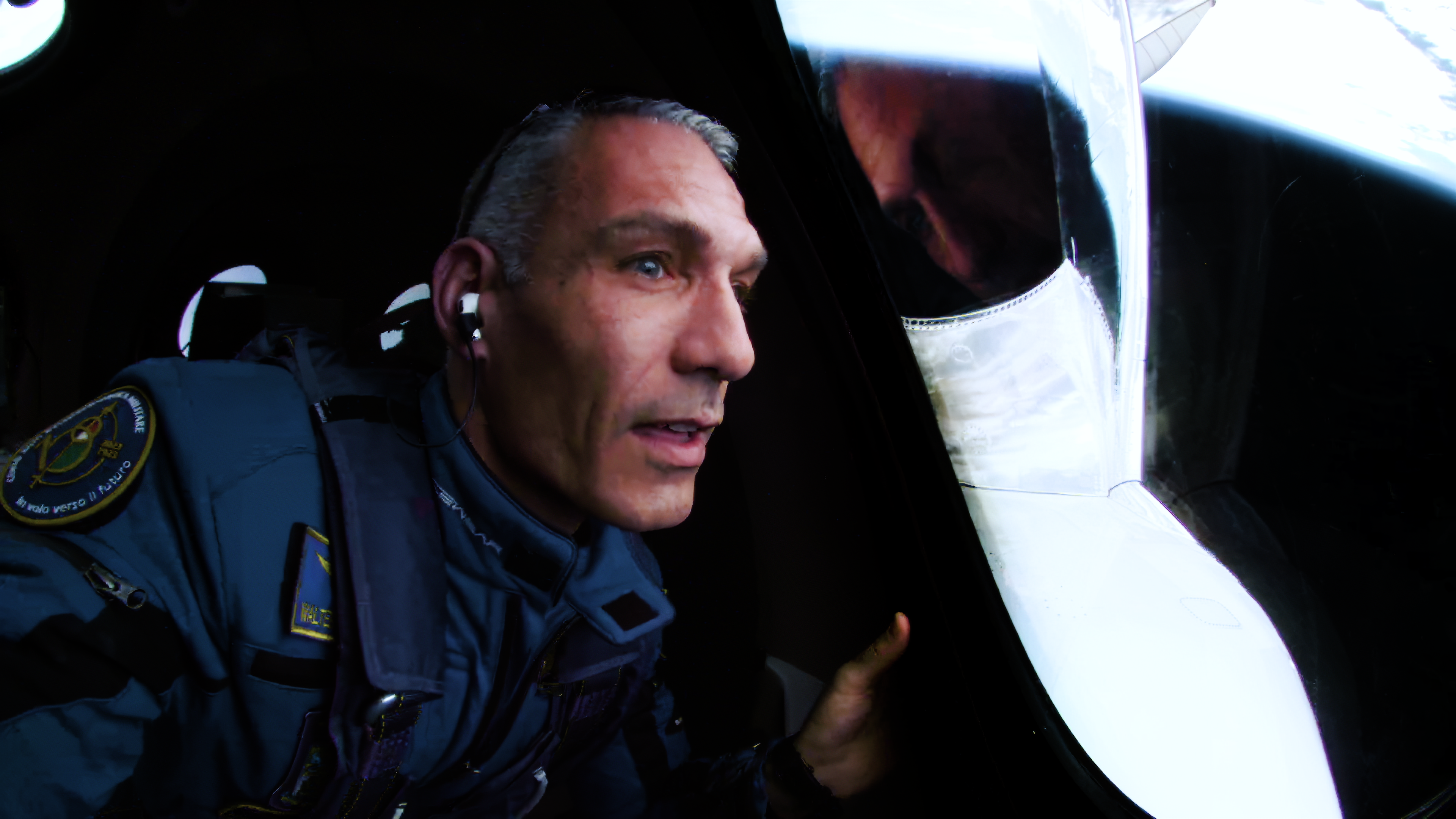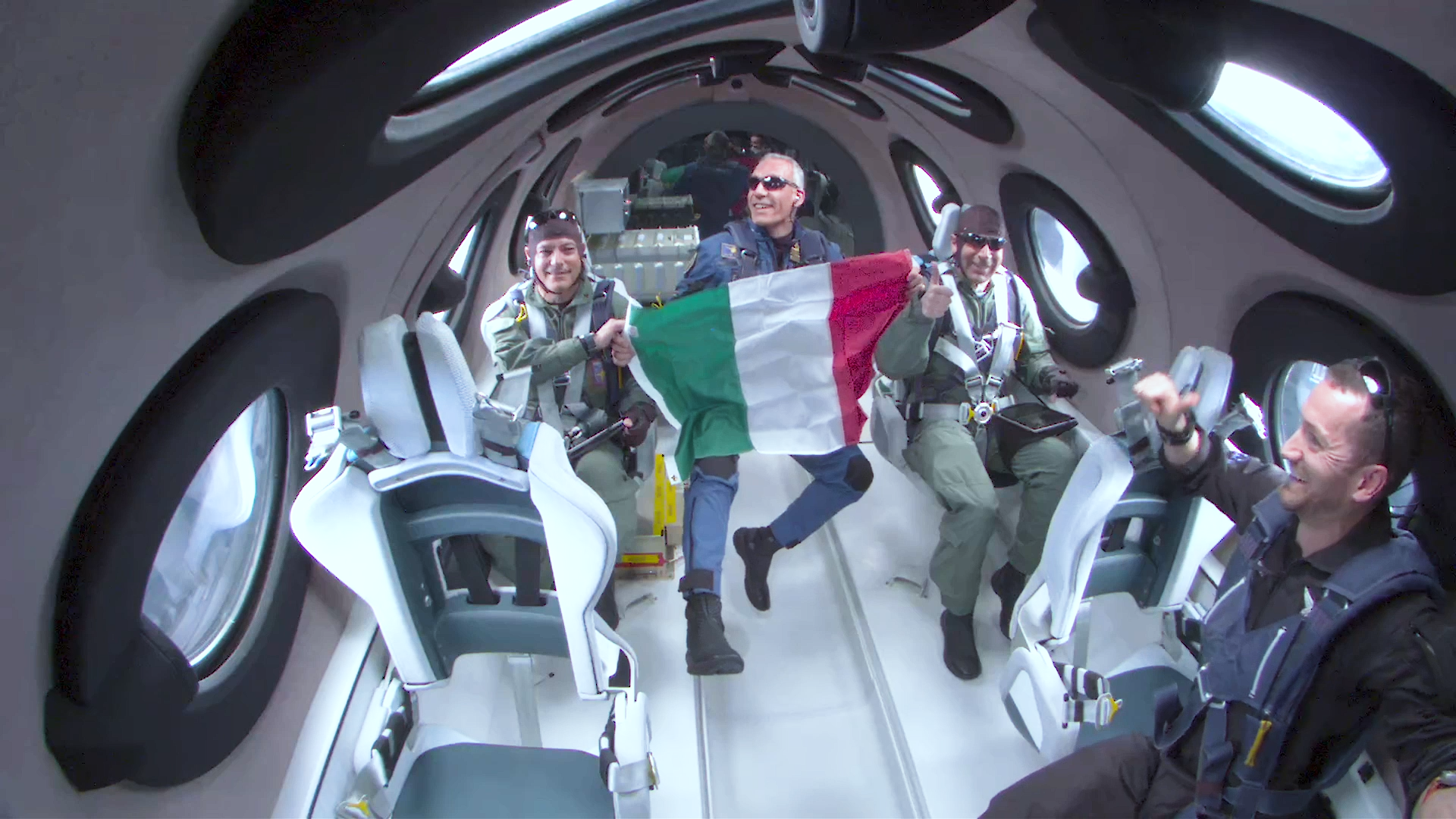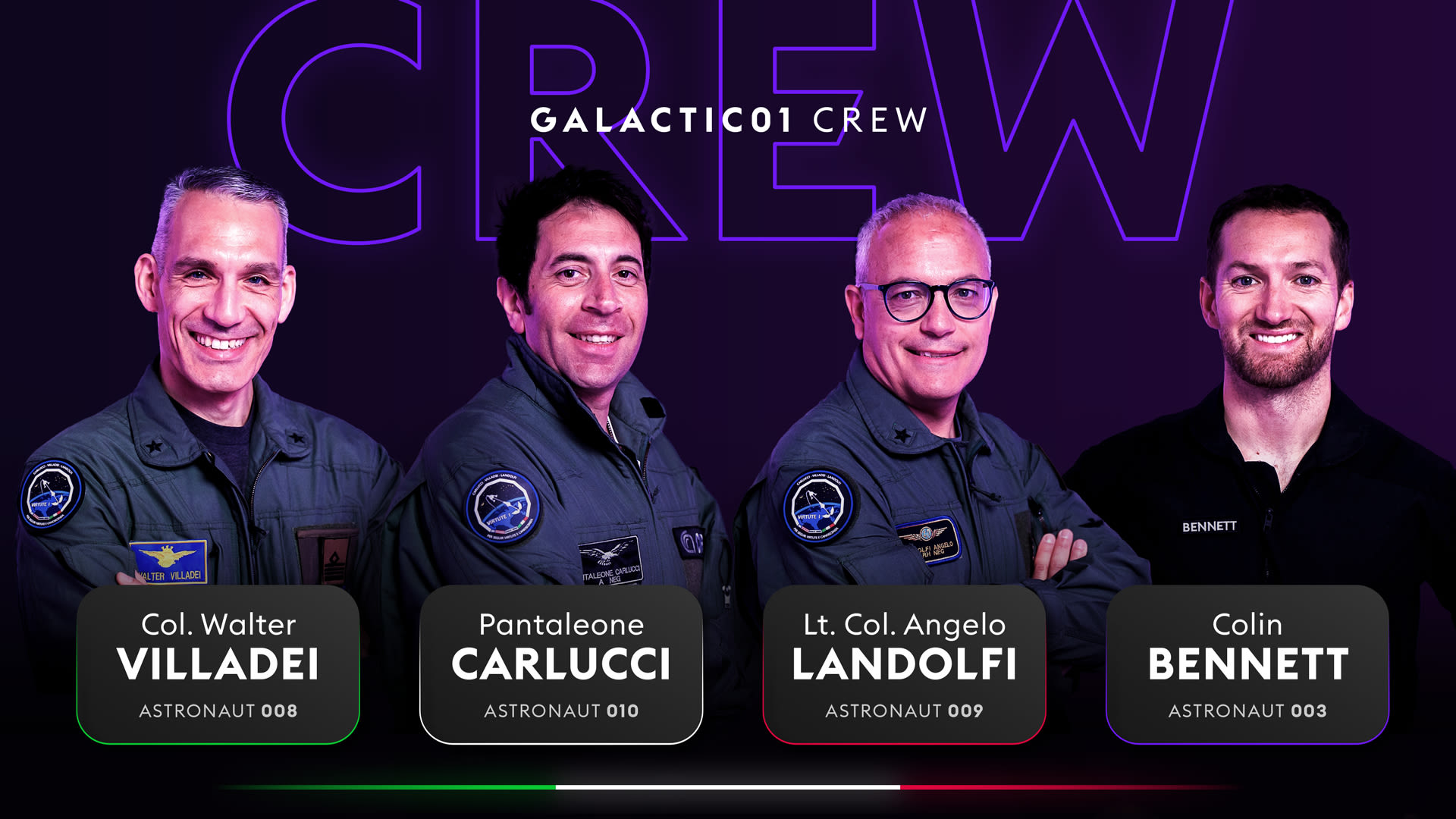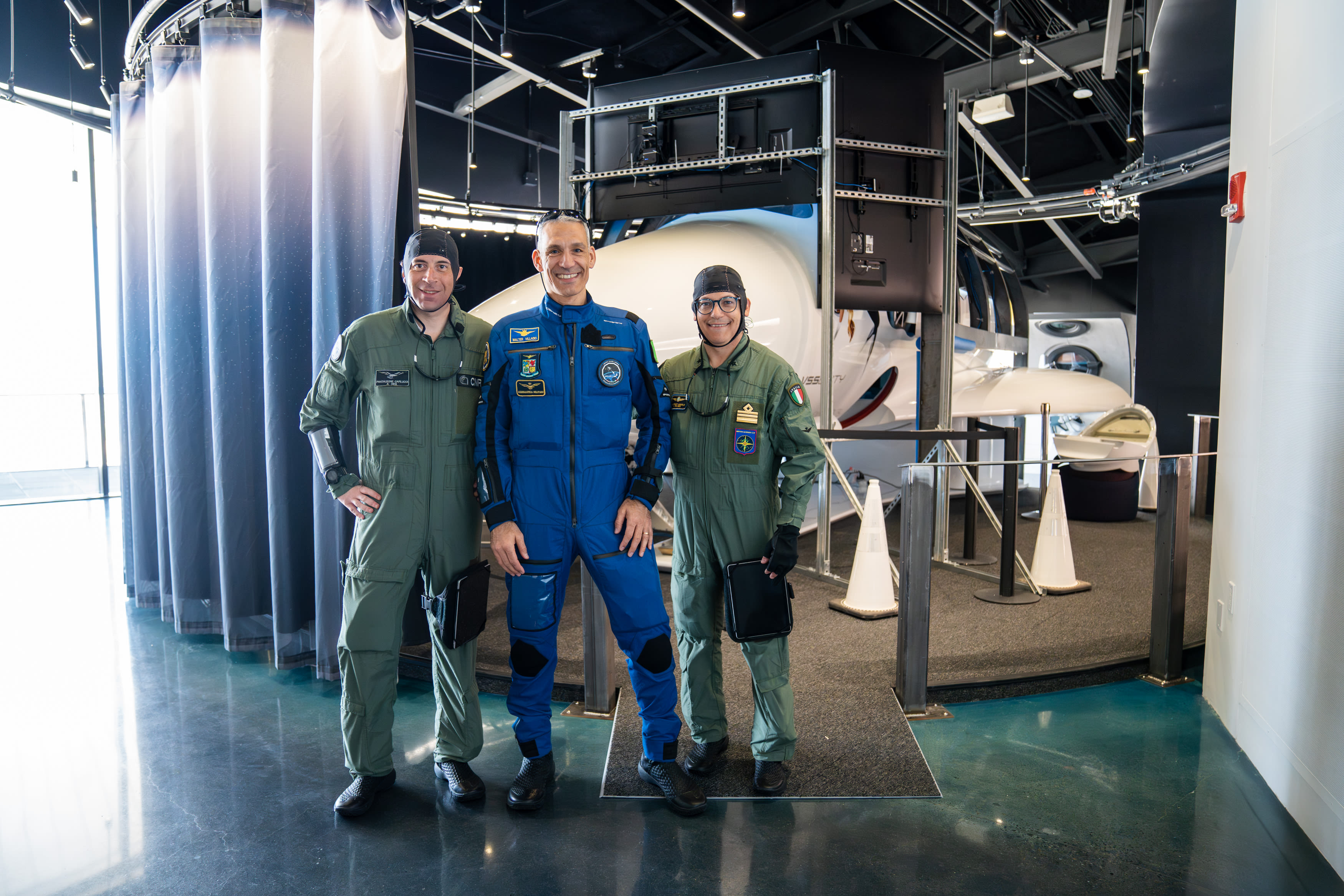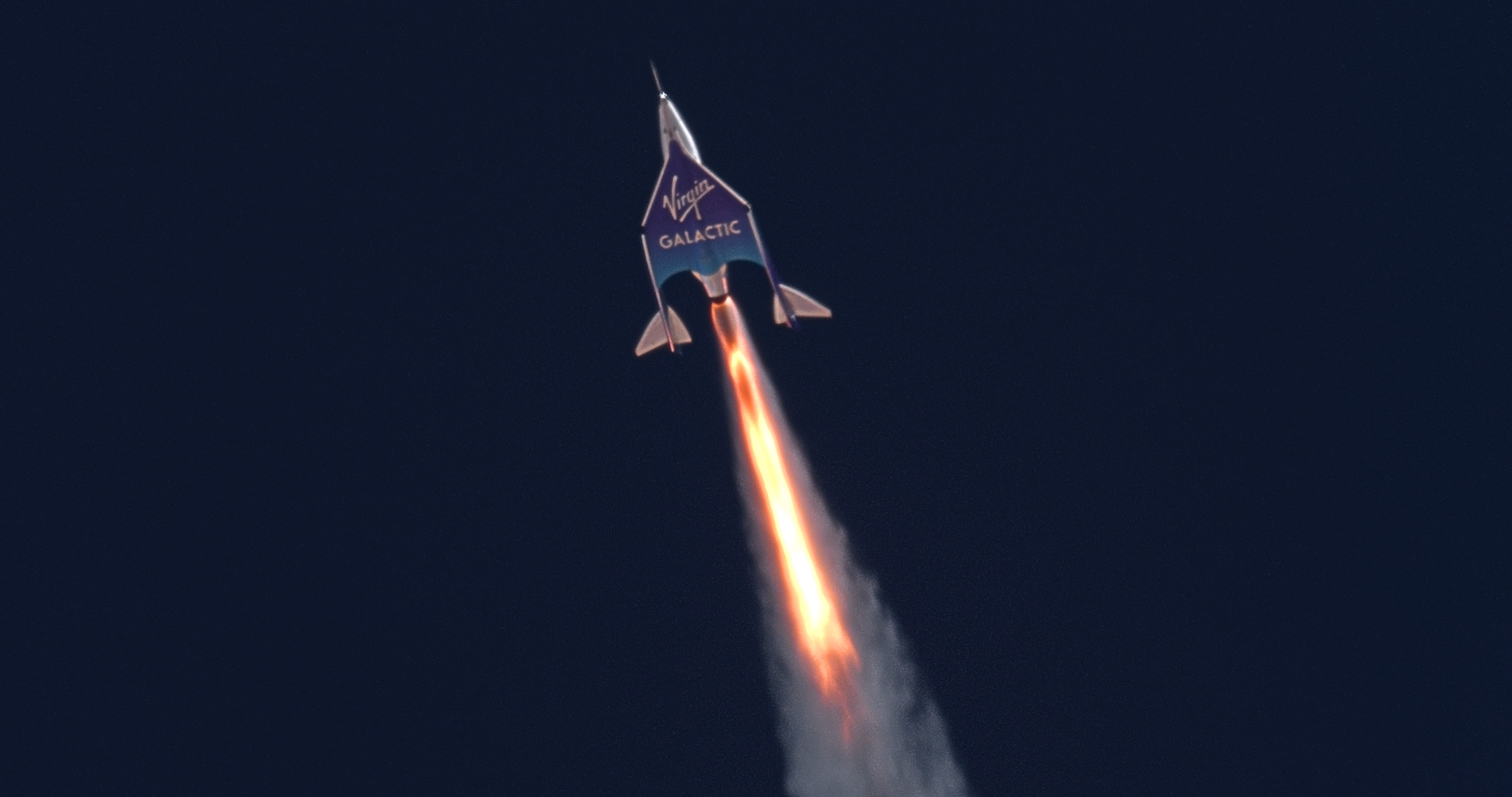Virgin Galactic completes inaugural commercial spaceflight
Virgin Galactic has completed its inaugural commercial spaceflight from Spaceport America in New Mexico.
The Galactic 01 spaceflight carried 13 research payloads and three crew members from the Italian Air Force and the National Research Council of Italy.
The take-off time was 8:30am MT, the altitude at release was 44,500 feet, the apogee was 52.9 miles, the top speed was Mach 2.88 and the landing time was 9:42am MT.
Virgin Galactic will now begin post-flight inspections and analysis in preparation for its next commercial space mission, Galactic 02, which will bring its unique experience to private astronauts. The mission is scheduled for August, with Virgin Galactic planning monthly flights to space beginning thereafter.
“Today, our team successfully flew six people and more than a dozen research payloads to space in VSS Unity, our unique, suborbital science lab,” said Virgin Galactic CEO Michael Colglazier. “This historic flight was our first commercial flight and our first dedicated commercial research mission - ushering in a new era of repeatable and reliable access to space for private passengers and researchers. Galactic 02, our first spaceflight with private astronauts, is planned for August and we expect VSS Unity to continue with monthly space missions while we simultaneously work to scale our future spaceship fleet for a global audience.”
The crew onboard Galactic 01 was:
Astronaut 008, Col. Walter Villadei, Italian Air Force
Astronaut 009, Lt. Col Angelo Landolfi, Physician, Italian Air Force
Astronaut 010, Pantaleone Carlucci, Engineer, National Research Council of Italy
Astronaut 003 Colin Bennett, Astronaut Instructor, Virgin Galactic
VSS Unity was piloted by commander Mike Masucci and pilot Nicola Pecile, with VMS Eve piloted by commander Kelly Latimer and pilot Jameel Janjua.
Col. Walter Villadei of the Italian Air Force said:
"I am beyond proud to be a part of this historic spaceflight. Galactic 01 is Italy’s first commercial suborbital research spaceflight, and an amazing achievement made possible thanks to the long-lasting collaboration between the Italian Air Force and the National Research Council of Italy. During the centennial year of both Italian institutions, we fly to the highest point of our history.
"This groundbreaking collaboration propels Italy into the new era of commercial spaceflight as a pathfinder, fostering innovation and paving the way for further technological enhancement in this strategic domain. Together, and in partnership with Virgin Galactic, we have set a precedent for future endeavours and the boundless possibilities that lie ahead. We honour today all the people that not only have made possible this amazing flight, but all the ones that have dedicated their life to our beliefs in this past 100 years. Virtute Siderum Tenus."
13 human-tended and autonomous experiments were conducted on board Galactic 01 to examine the biomedical field, thermo-fluid dynamics and the development of innovative and sustainable materials in microgravity conditions. You can read more about all 13 experiments at VirginGalactic.com.
The spaceflight also evaluated and measured hypergravity to microgravity transition effects on the human body, including both biological and physical data properties. It also collected data through wearable research payloads and sensors, and by autonomous research payloads mounted in the cabin on Virgin Galactic’s payload rack system.
Sirisha Bandla, VP of Government Affairs and Research Operations at Virgin Galactic, said:
We are honoured that our first commercial spaceflight enabled the Italian Air Force and the National Research Council of Italy to successfully carry out their first suborbital research experiments. This successful mission gives us just a preview of what discoveries may result from reliable access to space to further scientific knowledge.
